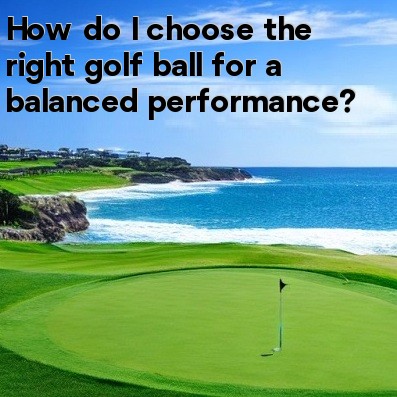
How to Choose the Right Golf Ball for a Balanced Performance
Golf balls are an integral part of the game, and choosing the right ball can significantly impact your performance on the course. With a wide variety of options available in the market, it can be overwhelming to determine which ball is best suited for your game. However, by considering a few key factors, you can select a golf ball that provides a balanced performance.
- Consider Your Skill Level: Your skill level is an essential factor in choosing the right golf ball. If you are a beginner or have a high handicap, consider using distance balls that offer maximum forgiveness and help maximize your distance. On the other hand, if you are a low-handicap golfer with stronger ball control, you might benefit from using higher-quality balls designed for better control and feel.
- Assess Your Swing Speed: Another crucial factor when selecting a golf ball is your swing speed. Golf balls are designed with different compression levels that directly influence their performance. If you have a slower swing speed, a lower compression ball can help you maximize distance. Conversely, if you have a faster swing speed, a higher compression ball will offer better control and feel.
- Consider the Course Conditions: The course conditions you typically play on should also influence your choice of golf ball. If you frequently play on soft, wet courses, choosing a ball with a softer cover can provide more spin and better control around the greens. In contrast, if you often play on firm, fast courses, selecting a ball with a harder cover can help maximize distance and reduce spin.
- Understand Ball Construction: Golf balls are constructed with different layers that impact their performance. Two-piece balls are known for their durability, distance, and lower spin. They are a popular choice for beginners and golfers with slower swing speeds. Multi-layered balls, on the other hand, provide a balance of distance, control, and feel. They are suitable for mid to low-handicap golfers who want a versatile ball for various course conditions.
- Seek Professional Advice: If you are unsure about which golf ball to choose, seeking advice from a golf professional can help. They can assess your game, swing speed, and skill level to recommend the right ball that suits your needs and preferences.
- Try Different Balls: Finally, the best way to determine the right golf ball for you is to try out different options. Many golf manufacturers offer trial packs or individual sleeves of their balls, allowing you to try them out on the course and assess their performance firsthand. Pay attention to how the ball feels off the clubface, its distance, and its performance around the greens.
Ultimately, finding the right golf ball for a balanced performance requires considering your skill level, swing speed, course conditions, ball construction, seeking professional advice if needed, and conducting personal trials. By investing time and effort into selecting the right ball, you can enhance your performance and enjoyment of the game.





